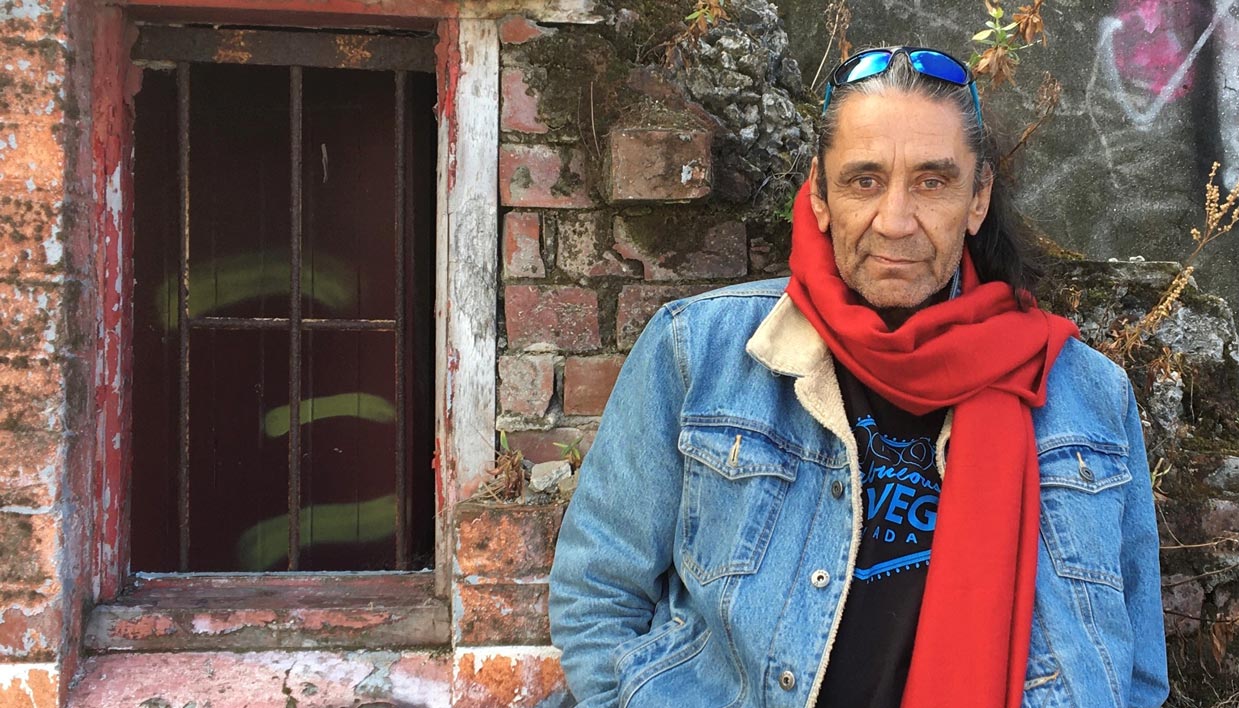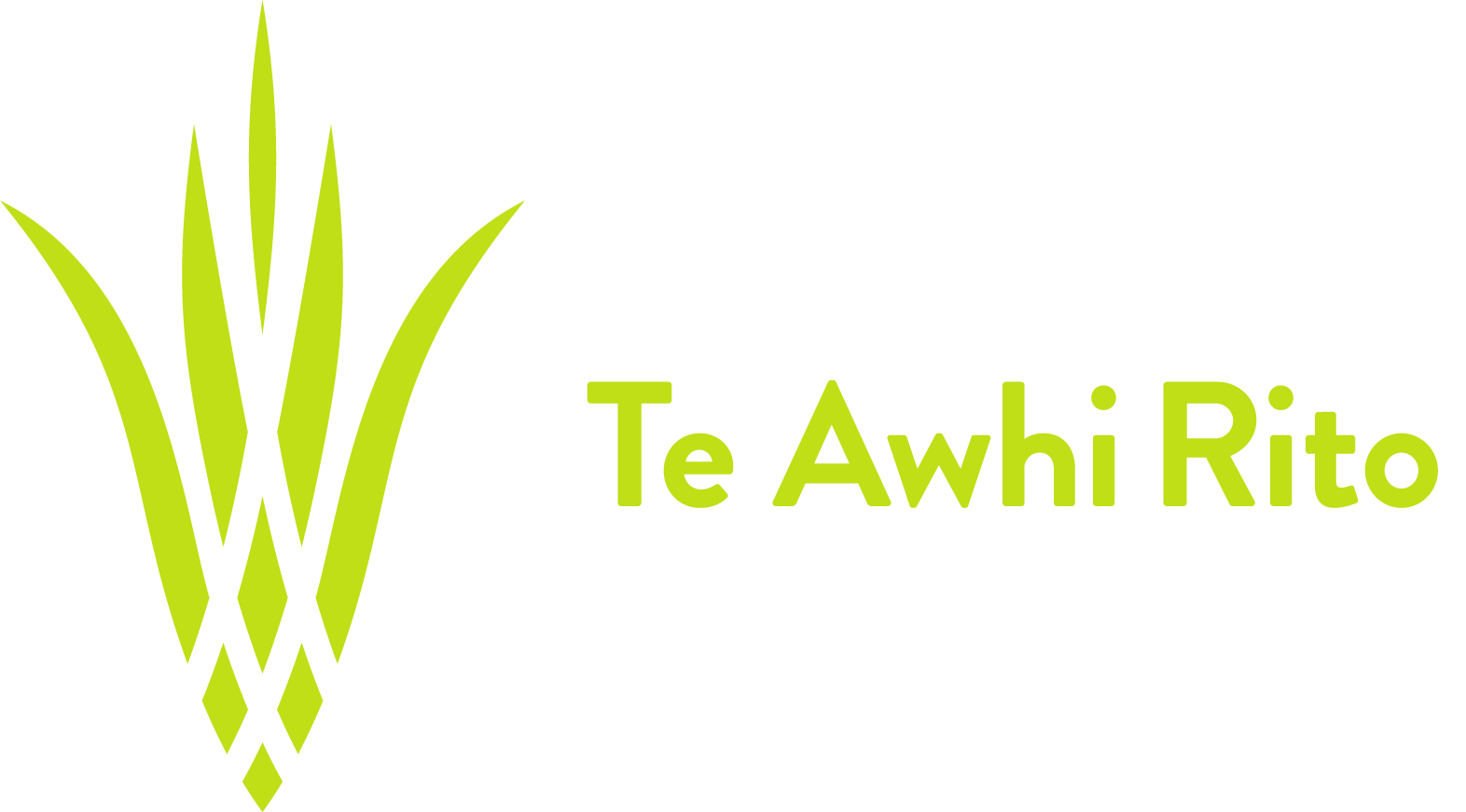The power of story — reflections from our Reading Ambassador
Ben Brown, New Zealand's first Te Awhi Rito Reading Ambassador, poet and writer reflects on the importance of reading to children and sharing stories: ‘You are showing them who they are, where they belong and how to communicate effectively with the world’.
Tuiā, tui tuiā
Tuia te hā
Tuia te kupu
Tuia te kōrero
Tāu te māramatanga
Tihei mauri ora!

Ben Brown, Te Awhi Rito New Zealand Reading Ambassador, Lyttelton 2021. Image credit: Helen Taylor. All rights reserved. Used with permission
It started when my father threw the book
I love reading, have done since sometime in 1972 when my father stood in my bedroom doorway one Sunday afternoon and ‘threw the book at me’.
It was a big book. Hard covered but without the dust jacket. The book seemed old but not ancient. The cover was a light green that seemed faded just a little, and the boards gave the impression of being covered tightly in some kind of cloth, canvas-like in texture, though I don’t think this was the case. The paper stock I seem to recall as quite substantial, there was bulk; to the pages, the bound and gathered sections, the entire volume, which was stitched and glued but would lie open where you left it from seemingly countless readings, none of them as yet my own, but several at least would have been my father’s.
‘Read it!’ he said. He’d written his name on a flyleaf in pencil. I wish I knew for sure what year, but I figure he’s on at me and I’m 10, so I reckon 1943.
The title and author's name on the cover were rendered unobtrusively but obvious none the less, somehow dignified in the plain and simple setting; lettered neatly and without undue adornment in a darker ink that may have once been red or perhaps was always a kind of brown; The Adventures of Tom Sawyer I’m certain composed of a single line exactly where proportion would expect it to be, centred just above the quarter line from the top to balance the author’s name centred on or around a similar line from the bottom of the cover: Mark Twain.
My father had been on at me for a while about this book, about Mark Twain himself, a pseudonym drawn from the riverboat days and the two fathom knot. I had dodged it till now, claiming better things to do, but today I had run out of options. The truth is, I’d never tackled a book of this size, of this heft, of this substance. This was a big book. This was a novel. This was two or three years of a man’s writing.
Reading with boats
Reading came easily to me it seemed. That is how I remember it.
But at school for a long time I found it a chore. Funny little journals and books and boxes of exercise cards were created to guide and progress us all through grades of reading and levels of comprehension denoted by colours and apparently growing sophistication of content where the ideas and complexity got bigger and more as the typeface grew smaller. To be fair, some of the content almost had a point, with stories about stuff that was kind of familiar yet nothing like we knew — all at the same time, which is actually a clever thing to do in a way.
Boat Day for some reason sticks in my head. Set in an imaginary school that was nothing like ours except that it had kids and teachers and classrooms and a pool. I’m sure there were parents like a dad and a mum doing something or other, but they were townies and we were farmers so yeah, nah not really.
So much for Boat Day. What can I say — I lived on a river, my best friend and I would build rafts every summer out of tractor tubes and empty drums, wired or tied to a deck of eight by one-inch planks we’d pinch off dad’s timber stack. We stepped a mast last time as near as eight feet high. We had ropes rigged from the mast to each corner of the raft, like a tent pole might have, then we rigged up a cross-spar near the mast top, where one of mum’s flannelette sheets, a white one with red and green stripes, hung listlessly, in the manner of a viking ship sail, sort of. It wasn’t really much of a sail but we couldn’t care less because the river was ours and would take us where we wanted. And we didn’t own a toy boat between us. Why would you when you Captained a raft named River Rat. Stories like Boat Day seemed pointless to me.
Stories told, read to me were precious
But stories at home, told to me, read to me, recited, related, remembered as touchstones, as stars by which to navigate, as moments of memorial made permanent by the gravity and tone of the telling and retelling, by the fullness and richness and vividness of words that somehow I knew had much more to reveal — that was the golden time — though my mother and father were from two different worlds, two different languages, two different lands, two different ways of doing just about everything except work. In that they were united — they went at it like machines.
Maurimahi, mauriora! mum might say sometimes as a summary of attitude. That was mum right there, you see. Succinct. To the point. I work therefore I am. It is one way of translating it, the one I prefer to remember her by. That’s what really grabbed me, right from the get go — the magic self evident in their own chosen words, and the ways in which they presented them to me.
Mum would just start telling you stuff, she’d get you to help her with something like fetching the eggs from the chook house or digging some spuds for dinner or setting the table and something would just start her off on a journey, like out in the garden where we could see dad having a smoke one evening, down by the old whaleboat he bought a while back, before I was born, but never got around to fitting it out for reasons I will not go into here — again with the boat thing though — like it might be some kind of motif in my life. I like recurring themes, as long as they remain pleasant.
‘Your father and that bloody boat! Only one waka eh, son — Ko wai tēna eh?’
‘Ko Tainui te waka!’ I would respond.
‘Kei whea tēna waka i te rā nei, eh sonny? Kei whea?’
Where is that waka today sonny? Where?
‘E takoto rā i a Kāwhia, kei raro i nga kōhatu, ko Puna raua ko Hani.’
Lying at Kāwhia, under the stones called Puna and Hani.
‘Ae ā, ko wai te tangata kua whakatakoto te waka?’
Yes, and who is the man who laid down the waka to rest?
‘Ko Hoturoa te Tangata.’
Hoturoa, he’s the man!
So read to your kids, every day
Here’s the thing, I’ll be direct. If you’re a teacher, a librarian or a parent, read your kids a story every day.
Give it vigour. Make it real. Invest it with your mauri and your mana. You must anyway, if you give it your voice. And you don’t need to be Māori to find mauri and mana within your own voice. Don’t let anyone tell you you do. Say it with meaning, true heart and honest intent, the rest will follow.
And don’t dodge the duty. If you believe that you are time poor, can’t fit it into your hectic schedule, I must tell you, you are not. Time is boundless. Time is te wā. Time is not a clock that binds you to its ticking and the smaller marks you find between its quarters and its twelfths.
Make it a duty in your life to reveal the capacity, range and potential of language to children, whether they’re at primary and secondary school. Do it with style. If they are your own children tie it to love and familial unity. Language made Humanity and continues to define it.
Anyway, why wouldn’t you want to take ten or fifteen minutes a day just to demonstrate to your children the absolute majesty that is language. Make it known to them, these sounds, these symbols, these assemblies of words, this extraordinary invention of language is the single greatest achievement of human kind without exception. It makes us the apex predator of the world and all its resources. It renders us capable of anything we can imagine.
Read your kids a story. Every day. Find a way. Use beautiful, powerful, interesting words. Express them properly, with passion and belief. Give them space to work their magic. Words are magic by the way. It’s really, quite self-evident when you think about it. That’s why a word that makes magic happen is called a ‘spell’.
Share the message with parents. And if they can’t read, suggest they share a story with their children. And start story telling early in their child’s life.
Reading to your children, telling them stories, saying it out loud, this is not the same as teaching them to read. That’s not what it’s about. As profoundly important as learning to read is, there is something much deeper, more significant going on. This is foundational work, fundamental to lifelong wellbeing. You are showing them who they are, where they belong and how to communicate effectively with the world.
If you are sincere and see it through, it can only yield rewards. Once this base is established, the importance of teaching your children to read cannot be overstated.
Further information
Reading aloud — find out more about reading aloud and download brochures in a range of languages, which include tips for reading together for pleasure.
